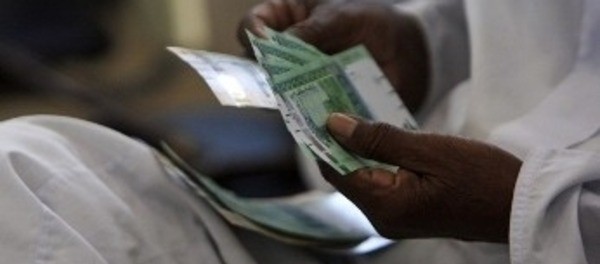Sudan's currency falls to record low

Sudan's currency has fallen to a record low against the dollar on the black market since South Sudan started reducing cross-border oil flows in a row over alleged support for rebels, dealers said.
There is little foreign trading in the Sudanese pound but the black market rate is an important indicator of the mood of the business elite and of ordinary people left weary by years of economic crises, ethnic conflicts and wars.
The rate is also watched by foreign firms such as cellphone operators Zain and MTN and by Gulf banks who sell products in pounds and then struggle to convert profits into dollars. Gulf investors also hold pound-denominated Islamic bonds sold by the central bank.
On Wednesday, one dollar bought 7.35 pounds on the black market - which has become the business benchmark - compared to 7 last week, black market dealers said. The central bank rate is around 4.4.
The pound has more than halved in value since South Sudan became independent in July 2011, taking with it three-quarters of the united country's oil output. Oil was the driver of the economy and source for dollars needed for imports.
Last week, South Sudan said it would close all oil wells by the end of July after Sudan notified it a month ago it would halt cross-border oil flows unless Juba gave up support for rebels. South Sudan denies the claims.
Flows had only resumed in April after an earlier 16-month oil shutdown following South Sudan's secession.
"People worry that oil flows will stop," said a dealer in Khartoum. "Demand for dollars is already now exceeding what's available in the market."
The oil row threatens some $500 million Sudan could have expected in pipeline fees from South Sudan this year, according to the International Monetary Fund (IMF).
Sudan has sought to replace oil revenues with gold exports, reaping $2.2 billion in the last year. It has not published any figures for this year yet but analysts expect a decline due to a recent fall in gold prices.
Sudan avoided an "Arab Spring" that unseated rulers in nearby Egypt but soaring inflation has sparked small protests against President Omar Hassan al-Bashir, in power since 1989.
The fall of the pound has hit hard Kuwait's biggest cell operator Zain which posted a 27 percent fall in first-quarter net profit due to its Sudan operations.
(Reporting for Reuters by Khalid Abdelaziz; Writing by Ulf Laessing; Editing by Toby Chopra)